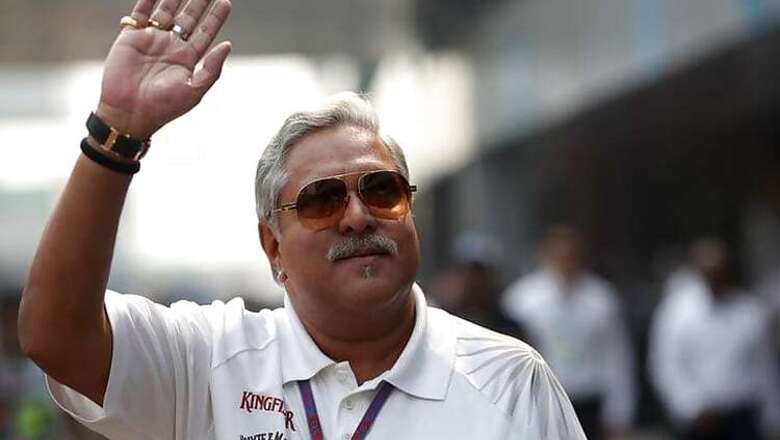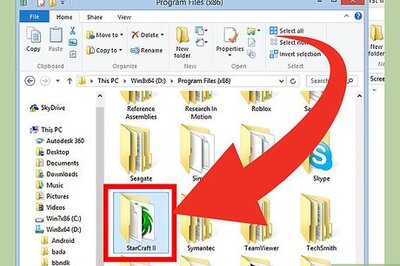
views
New Delhi: Liquor baron Vijay Mallya, who is facing legal proceedings for alleged default of loans worth over Rs 9,000 crore from various banks, was on Thursday directed by the Supreme Court to disclose by April 21 the total assets owned by him and his family in India and abroad.
The apex court also sought an indication from him when he will appear before it. It asked Mallya, who owes over Rs 9,000 crore to around 17 banks, to deposit a "substantial amount" with it to "prove his bonafide" that he was "serious" about meaningful negotiations and settlement.
The directions by the bench, comprising Justices Kurian Joseph and R F Nariman, came after a consortium of banks led by State Bank of India "unanimously rejected" the proposal in the current form offered by Mallya and his companies to pay Rs 4,000 crore by September towards settlement of his loan.
The bench agreed with the consortium that Mallya's presence was necessary in the country to show his bona fides that he was serious about settling his dues. After a brief hearing of 20 minutes, it posted the matter for further hearing on April 26.
At the outset, the consortium of banks told the apex court that it was not averse to the settlement but Mallya has to show his bona fides by being present in the country.
"Vijay Mallya has to prove his bona fides by presenting himself for suitable negotiation and presenting a contingency plan that he is getting money from X and Y and then he will pay to the banks," senior advocate Shyam Divan, appearing for the consortium of banks, said.
"For suitable negotiations, he should be present and should declare all his movable, immovable, tangible and intangible assets in both in India and abroad," he said.
Divan said the proposal given by Mallya in the present form has been rejected and conveyed to him, after which he made a second offer with "slight modification" last evening which is under consideration.
For suitable negotiation, Mallya needs to be in the country and before the court so that it is known what he plans to do and how, he said. "These are large figures involved.
We think it is reasonable to ask him to make a full, fair and final disclosure of his assets. He can throw contingencies at us for making these payments.
He should make a substantial advance deposit and his presence is required so that negotiations can be done person to person. Senior bank officials will also be present in the court to have an effective solution," Divan submitted.


















Comments
0 comment